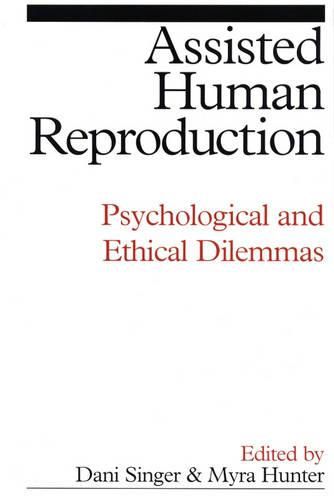Readings Newsletter
Become a Readings Member to make your shopping experience even easier.
Sign in or sign up for free!
You’re not far away from qualifying for FREE standard shipping within Australia
You’ve qualified for FREE standard shipping within Australia
The cart is loading…






With contributions from: Eric Blyth, Ken Daniels, Julia Feast, Robert Lee, Nina Martin, Alexina McWhinnie, Derek Morgan, Clare Murray, Sharon Pettle, Claire Potter, Jim Richards and Francoise Shenfield The separation of procreation from conception has broadened notions of parenthood and created novel dilemmas. A woman may carry a foetus derived from gametes neither or only one of which came from her or her partner; or she may carry a foetus created using in vitro fertilisation (IVF) with the purpose of handing it to two other parents one, neither or both of whom may be genetically related to the prospective child. Parents may consist of single–sex couples, only one of them genetically related to the child; the prospective mother may be past her menopause; and genetic parenthood after death is now achievable. In a world increasingly reliant on medical science, how can the argument that equates traditional with natural and novel with unnatural/unethical be justified? Should there be legislation, which is notoriously slow to change, in a field driven by dazzling new possibilities at ever faster rate; particularly when restrictions differ from country to country, so that those who can afford it travel elsewhere for their treatment of choice? Whose rights are paramount – the adults hoping to build a family or the prospective child(ren)s future well being? On what basis can apparently competing rights be regulated or adjudicated and how and to what extent can these be enforced in practice?
$9.00 standard shipping within Australia
FREE standard shipping within Australia for orders over $100.00
Express & International shipping calculated at checkout
With contributions from: Eric Blyth, Ken Daniels, Julia Feast, Robert Lee, Nina Martin, Alexina McWhinnie, Derek Morgan, Clare Murray, Sharon Pettle, Claire Potter, Jim Richards and Francoise Shenfield The separation of procreation from conception has broadened notions of parenthood and created novel dilemmas. A woman may carry a foetus derived from gametes neither or only one of which came from her or her partner; or she may carry a foetus created using in vitro fertilisation (IVF) with the purpose of handing it to two other parents one, neither or both of whom may be genetically related to the prospective child. Parents may consist of single–sex couples, only one of them genetically related to the child; the prospective mother may be past her menopause; and genetic parenthood after death is now achievable. In a world increasingly reliant on medical science, how can the argument that equates traditional with natural and novel with unnatural/unethical be justified? Should there be legislation, which is notoriously slow to change, in a field driven by dazzling new possibilities at ever faster rate; particularly when restrictions differ from country to country, so that those who can afford it travel elsewhere for their treatment of choice? Whose rights are paramount – the adults hoping to build a family or the prospective child(ren)s future well being? On what basis can apparently competing rights be regulated or adjudicated and how and to what extent can these be enforced in practice?